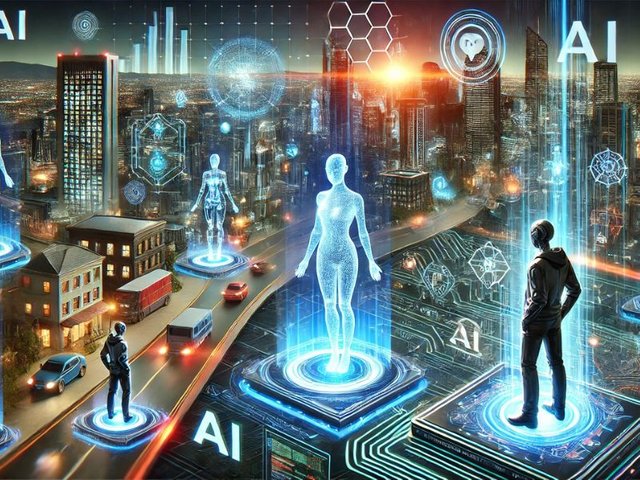What Are the Key Challenges in Creating AI Agents?
Artificial Intelligence (AI) agents are increasingly becoming integral to various industries, from healthcare and finance to gaming and customer service. These intelligent systems are designed to perceive their environment, make decisions, and take actions to achieve specific goals. However, despite their growing capabilities, developing AI agents comes with significant challenges. In this blog, we will explore the key obstacles in creating AI agents and how they impact their deployment and effectiveness.
1. Data Availability and Quality
AI agents rely on large volumes of high-quality data to learn and make decisions. However, obtaining sufficient and relevant datasets is often a major challenge. Issues such as data scarcity, biased datasets, and incomplete or noisy data can significantly affect the agent’s performance. Additionally, ensuring data privacy and compliance with regulations such as GDPR and CCPA adds complexity to data collection and utilization.
2. Computational Power and Scalability
Training sophisticated AI models requires substantial computational resources. Deep learning models, in particular, demand high-performance GPUs or TPUs, which can be expensive and energy-intensive. Scalability also becomes a challenge as AI agents need to handle growing amounts of data and real-time processing demands. Organizations must balance cost, energy efficiency, and model performance when deploying AI agents at scale.
3. Generalization and Adaptability
One of the biggest hurdles in AI development is creating models that can generalize well to unseen situations. AI agents often struggle when faced with novel scenarios that differ from their training data. Building AI systems that can learn adaptively, transfer knowledge across domains, and handle unexpected conditions remains a key research area in artificial intelligence.
4. Explainability and Transparency
Many AI models, especially deep learning-based agents, operate as "black boxes," making it difficult to interpret their decision-making processes. This lack of transparency poses ethical and regulatory challenges, particularly in high-stakes domains such as healthcare and finance. Developing explainable AI (XAI) techniques that provide insights into how AI agents reach decisions is crucial for building trust and accountability.
5. Human-AI Interaction and Ethical Considerations
AI agents must be designed to interact seamlessly with humans while adhering to ethical principles. Challenges include:
Ensuring fairness and preventing biases in AI decisions.
Avoiding manipulative or deceptive behaviors in AI-driven interactions.
Maintaining user trust through responsible AI deployment.
Establishing ethical guidelines and regulatory frameworks is essential to mitigate the risks associated with AI agents.
6. Security and Robustness
AI agents are susceptible to adversarial attacks, data poisoning, and system vulnerabilities. Hackers can manipulate input data to deceive AI models, leading to incorrect outputs or security breaches. Ensuring robustness against such threats requires rigorous testing, secure model training practices, and real-time monitoring to detect anomalies.
7. Real-Time Decision Making
For AI agents operating in dynamic environments (e.g., autonomous vehicles, robotics, and financial trading), real-time decision-making is critical. The ability to process and analyze data in milliseconds while ensuring accuracy and safety is a major challenge. Optimizing AI inference speed and developing efficient algorithms that balance speed with precision remains an ongoing area of innovation.
8. Regulatory and Legal Compliance
AI governance is evolving, with governments and regulatory bodies implementing laws to ensure AI’s responsible use. Compliance with these regulations can be challenging, as AI technologies often outpace legislative developments. Organizations must stay updated on AI-related laws and integrate compliance measures into AI development.
Conclusion
Creating AI agents presents numerous challenges, from data quality and computational requirements to ethical concerns and regulatory hurdles. Overcoming these obstacles requires continuous research, collaboration, and innovation. By addressing these challenges, AI developers can build more reliable, transparent, and ethically responsible AI agents that contribute positively to society.
As AI technology continues to advance, staying informed about these challenges and best practices will be crucial for businesses, researchers, and policymakers alike. What do you think is the most pressing challenge in AI development today? Share your thoughts in the comments!
